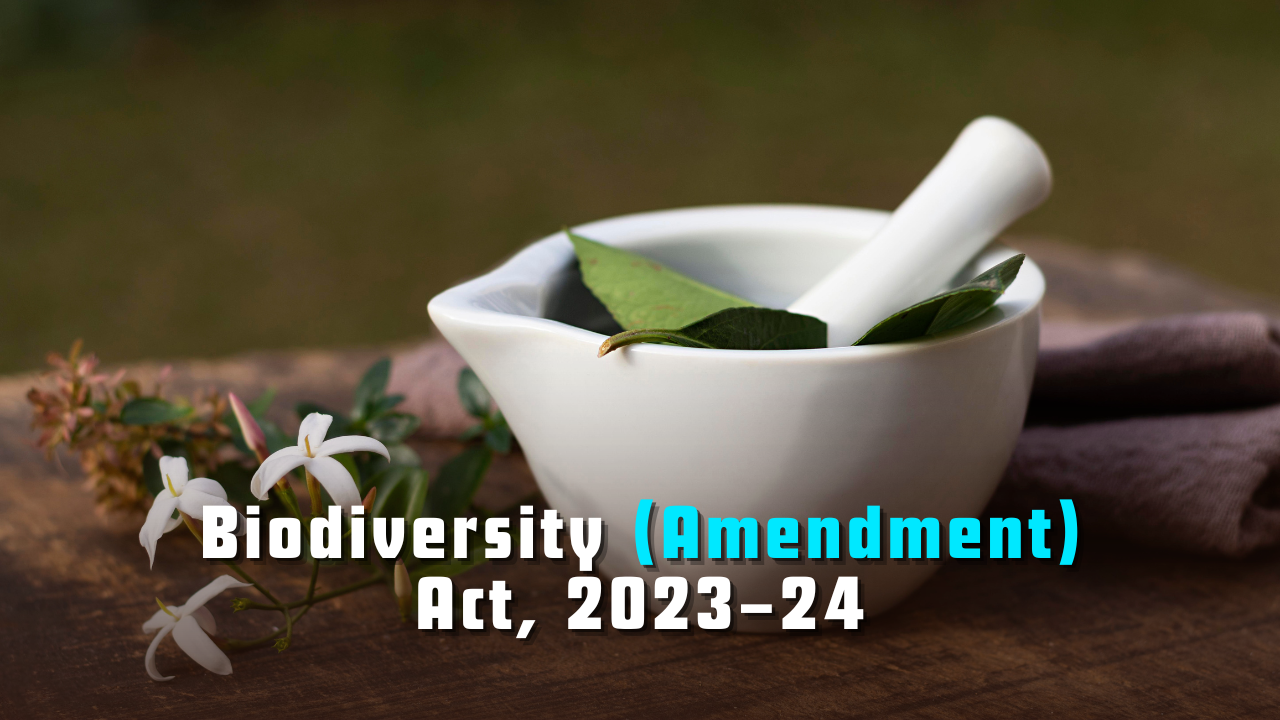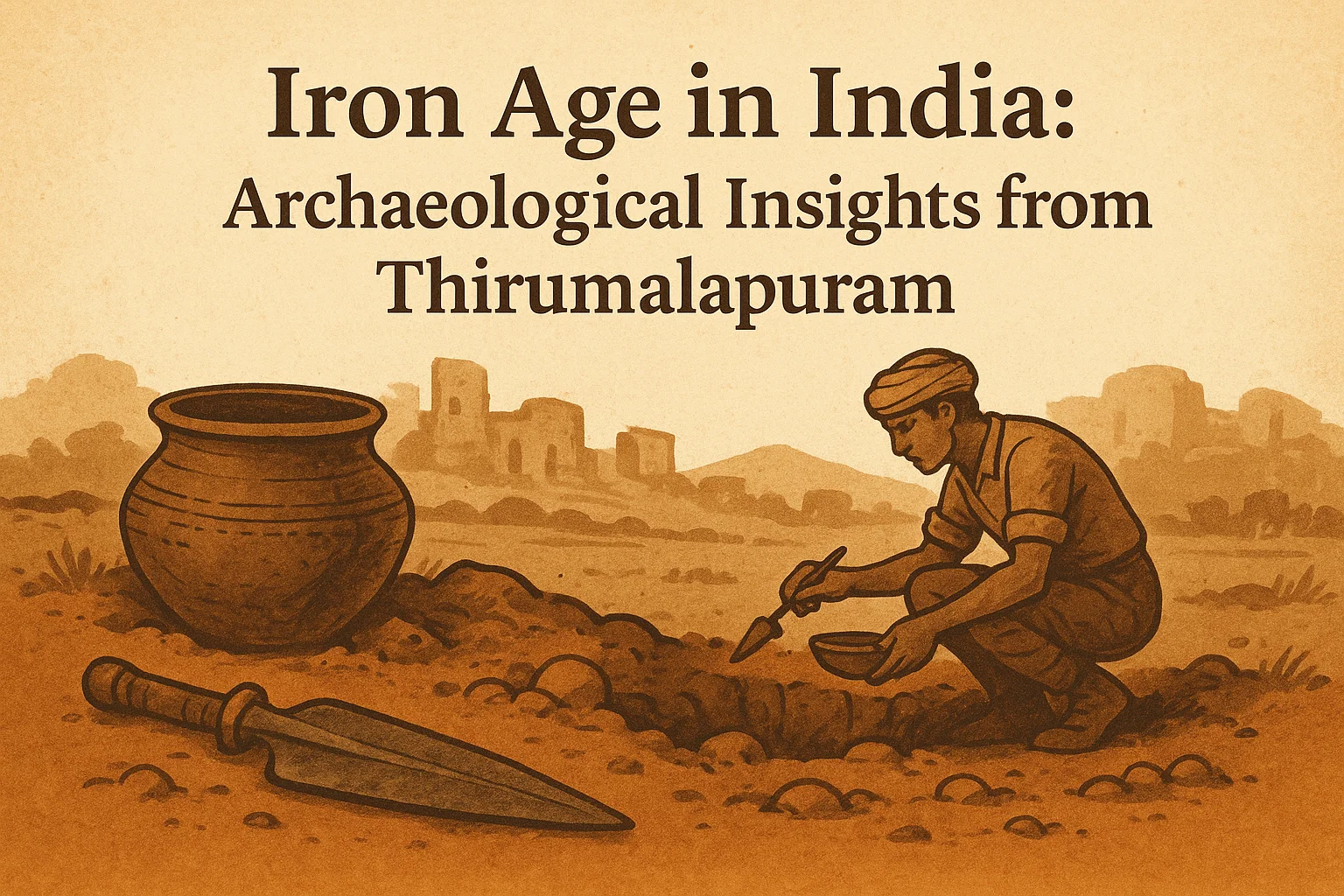Font size:
Print
Biodiversity (Amendment) Act, 2023–24
India to overhaul biodiversity norms to boost ayurveda biz innovation, conservation
Biodiversity: The Biological Diversity (Amendment) Act, 2023 introduced several significant changes to the original 2002 legislation, aiming to streamline processes, encourage sustainable use, and align with international commitments like the Nagoya Protocol.
What are the major changes made through the Biodiversity (Amendment) Act?
- Redefined “Biological Resources”: The definition now includes “derivatives” instead of “by-products,” broadening the scope to cover substances extracted from biological materials. Human genetic material remains excluded.
- Simplified Access for Indian Entities: Indian companies and traditional practitioners are exempted from prior approval for accessing biological resources for research, breeding, and traditional practices. This aims to promote ease of doing business and support Ayurveda and other indigenous systems.
- Streamlined IP and Benefit Sharing: Clear distinction between Indian and foreign entities seeking intellectual property rights. Foreign entities must still obtain approval and comply with Access and Benefit Sharing (ABS) obligations.
- Decriminalisation of Offenses: Violations under the Act are now civil in nature, with penalties imposed by adjudicating officers rather than criminal prosecution. This shift is intended to reduce litigation and encourage compliance through administrative mechanisms.
- Strengthened Role of Biodiversity Boards: State and local biodiversity boards have been given greater clarity and authority in implementing the Act. However, some boards (e.g., Maharashtra, Assam) expressed concerns over the new definition of derivatives.
How can it bolster the Ayurvedic medicine ecosystem?
- Simplified Access to Biological Resources: Indian companies and practitioners no longer need prior approval to access biological resources for research, breeding, or traditional practices. This removes a major hurdle for Ayurvedic startups and small manufacturers who rely on herbs and natural ingredients.
- Waiver of Benefit-Sharing Fees: Startups and small businesses with turnover below ₹5 crore are exempted from Access and Benefit Sharing (ABS) fees. This makes it financially easier to develop and market Ayurvedic products without complex negotiations or heavy costs.
- Faster Approvals for Research and Patents: The Act expedites approvals for scientific studies and patent applications involving biological resources. This encourages innovation in herbal formulations, nutraceuticals, and wellness products rooted in Ayurveda.
- Support for Codified Traditional Knowledge: Commercial use of cultivated medicinal herbs and codified traditional knowledge is exempt from benefit-sharing obligations. This legitimises and protects centuries-old Ayurvedic wisdom while promoting its commercial use.
Why is there a need to boost the Ayurvedic medicine ecosystem in India?
- Rising Global Demand: The global wellness tourism market is projected to surpass $1 trillion by 2030, and Ayurveda is a major draw. Countries like Russia, Brazil, and China are integrating Ayurvedic practices into their healthcare systems. India has signed MoUs with 25 countries to promote international collaboration in traditional medicine.
- Expanding Domestic Infrastructure: India now has over 1,000 Ayush colleges, including 500+ Ayurveda institutions, backed by strong research networks. States like Kerala are building international research centres to elevate Ayurveda’s global reputation.
- Innovation & Economic Growth: The Ayurveda sector was valued at ₹23,300 crore in 2022–23 and is growing rapidly. Boosting this ecosystem supports startups, MSMEs, farmers, and entrepreneurs, especially with reforms like the Biodiversity (Amendment) Act, which eases access to natural resources.
- Preventive Health & Public Wellness: With rising lifestyle diseases, Ayurveda offers preventive care through diet, detox therapies (like Panchakarma), and stress management. It’s increasingly seen as a complement to modern medicine, not a competitor.
Subscribe to our Youtube Channel for more Valuable Content – TheStudyias
Download the App to Subscribe to our Courses – Thestudyias
The Source’s Authority and Ownership of the Article is Claimed By THE STUDY IAS BY MANIKANT SINGH





